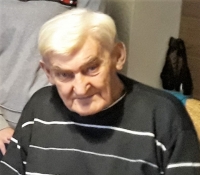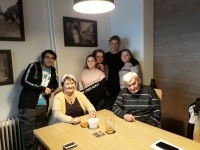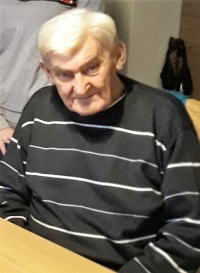The drunken Russian aimed his pistol at us

Download image
Jindřich Richter was born on June 25, 1939 in Brno to a mixed family. After the annexation of Austria, his father, who was of Austrian descent, had to enlist in the German army. Henry’s older brother was also taken to the Wehrmacht and enlisted in the SS in Hungary, where he suffered burns and died. At the end of the war, the witness narrowly escaped the bombing that killed most of the children from the kindergarten he was attending. In May 1945, he and his mother were expelled from the apartment with other Germans and had to march to Austria. After half a year in a concentration camp, they were moved to Stuttgart, where they lived until 1948. With the help of an American soldier, they managed to return to Brno, where they met their father, who spent several years in Soviet captivity. In the meantime, their apartment in Brno was looted and occupied by another family. In 1958, Jindřich enlisted in the army for technical battalions and subsequently worked in the cement plant.


